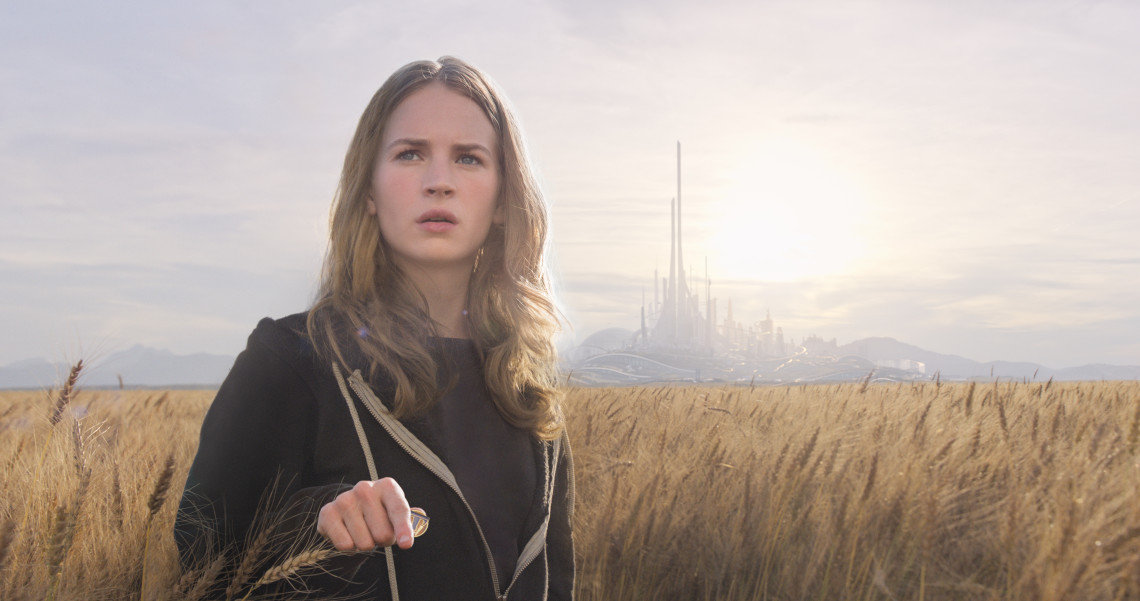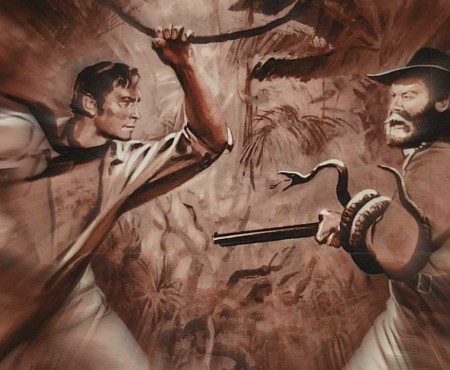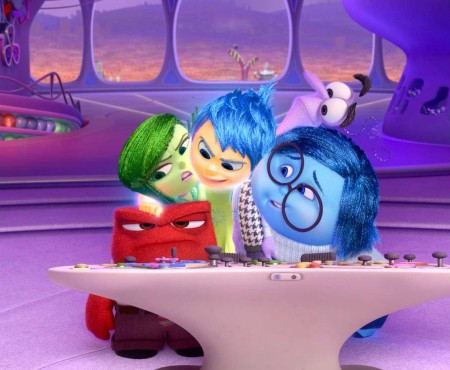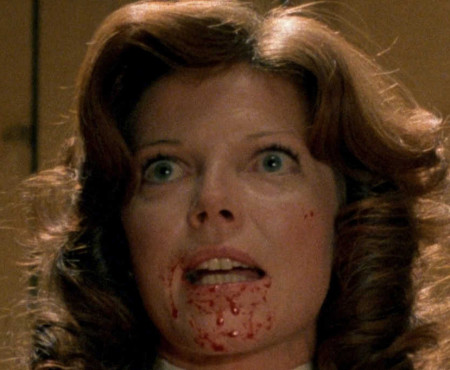Tomorrowland is an immensely frustrating film, precisely because it gets so many things right.. As directed by Brad Bird, Tomorrowland is a bright, well-paced, visually intriguing, and complex spectacle. In many ways, it feels like a Brad Bird film in that its message of hope and optimism in the face of adversity and despair is represented by a lead character whose singular cheeriness is enough to convince even the stoniest-faced doubters. Tomorrowland has a fine ensemble, including a gruffer-than-normal George Clooney. Its effects are incredible to behold and mostly very well-executed, even when viewed on the new Blu-ray.
So many elements of the film work so well that it’s a real shame about the story being a clunker. It’s easy to admire the optimism evinced in the script by Bird and Damon Lindelof, and interpreted by the true hero of the movie, teenager Casey Newton (Britt Robertson). And the idea of a fantastical world created, in no small part, by a quartet of the Western world’s greatest thinkers at the turn of the 20th century is equally compelling. Unfortunately, ideas do not always translate into good storytelling. There’s no great amount of detail into the film’s production in the extras, but even within the deleted scenes, there are signs (and acknowledgments by Bird) of reshoots. The film’s framing device, in which Clooney’s Frank (whose childhood was defined by time spent in Tomorrowland) and Casey jointly tell the story, is mildly humorous but also shows signs of trouble. It’s not a good sign when your two lead characters bicker about where their story should start.
That’s mostly what the film is: a lot of starting without much payoff. After an extended prologue where young Frank first visits Tomorrowland, we meet Casey, an optimist who attracts the attention of a mysterious British girl named Athena (Raffey Cassidy, very good at playing a riddle wrapped in an enigma) after sabotaging a NASA demolition. Casey receives a pin that transports her to Tomorrowland for a limited amount of time, after which she and Athena track down the reclusive Frank in hopes of returning to Tomorrowland to save Earth from apocalypse. The basic premise here isn’t so much of a problem, as much as the world-building around the premise. By now, Lindelof specifically is known for withholding answers within his various scripts. While it’s difficult to know how much of this script is his work versus Bird’s, there are telltale signs, such as the moment when one robotic character literally turns themselves off so they don’t have to answer questions.
Tomorrowland leaves a lot of questions unanswered, many of them totally logical and seemingly necessary to understanding the greater context of this story. (The one that still niggles at me: what exactly happened to Tomorrowland itself that it would find itself in abandoned, deserted disarray in the present, even though it was vibrant and bustling both in the 1960s and during Casey’s initial experience?) The film is also curious in its handling of the antagonist, Hugh Laurie’s Governor Nix. Laurie is given one monologue near the end of the film that seems designed to function as the bad guy revealing his dastardly plan so we can all hiss at him. Perhaps it’s that Laurie sells the hell out of the monologue—it’s not only nice to hear him with his native British accent, but playing such a delightfully supercilious bureaucrat. Or maybe Bird really does believe most of what his character is saying about how humans respond to apocalyptic imagery in popular culture. Either way, this big speech accomplishes the wrong task: it sounds eminently logical, eminently correct. Portraying a bad guy who sees himself as the good guy is admirable; portraying a bad guy who genuinely does not seem like a bad guy is something else.
But these are smaller problems that point to the largest issue of all: Tomorrowland is a first act in search of a payoff. Even by the end of the film, there’s a sense that we’ve just seen a preview, a taste of what’s to come. No doubt, thanks to the film flopping at the domestic box office, that’s all we’re ever going to get. On one hand, it’s a shame to see this do so badly at the box office; it’s difficult to emphasize enough exactly how much this movie’s message is worth hearing and spreading around. Any pro-science movies being made on such a large scale are good for the populace (Interstellar and The Martian make this an encouraging trend). But as easy as it may be to appreciate this message, a message and a movie aren’t the same thing. Tomorrowland has a great message, but it’s not a particularly good movie.
A/V
Tomorrowland looks and sounds marvelous on Blu-ray, full stop. By now, it’s expected that a Disney Blu-ray of one of their new films will have a high-quality high-definition transfer, but this one really takes the cake. The sound, specifically, has been given more than a solid once-over in the trip to Blu-ray; the imagery, especially in Tomorrowland itself, is given remarkable life on an HDTV, but the audio mix stands out even above what’s on the screen. Anyone interested in the film will be pleased with this end of things.
Extras
There’s not a ton here in terms of special features—this film demands an audio commentary from Bird and Lindelof, but sadly, none exists. The most substantial supplement is a series of deleted scenes with introductions from the two writers, totaling nearly 25 minutes overall. It’s fascinating just to see how many versions of the first half-hour there are. At one point, Casey lived not only with her parents and brother, but her uncle and his children; at another point, Casey’s mom (Judy Greer, who has more screen time here than in the feature) appeared to be a cancer patient, which would explain her absence in the finished film’s present-day scenes. You get the sense that the first third of this movie was just too challenging to nail down, even here.
Elsewhere, there’s a brief featurette based on Bird’s childhood memories of futurism and space travel, interspersed with the cast and crew getting to watch a NASA launch while making the film. (The latter aspect is repeated in the production diaries, of which there are only two.) Composer Michael Giacchino gets the spotlight in a short behind-the-scenes extra about composing the film and using the song “There’s a Great Big Beautiful Tomorrow” from Disney’s Carousel of Progress attraction; Richard Sherman shows up as well to talk about the impact of that song and how Walt Disney connected with it so strongly. Finally, there’s an animated short detailing the Plus Ultra group that “created” Tomorrowland (you can play the movie with this short playing beforehand), and five minutes of fake outtakes for a pro-science TV show Walt Disney “commissioned” in the 1960s, hosted by Laurie’s character. In some ways, that’s the best extra, if only because Hugh Laurie being nasty is always fun. Always.
Overall
Tomorrowland is a step down for Brad Bird, but his passion and sincerity for the message within the film is on full display in this Blu-ray, which is recommended primarily for hardcore fans only.




















